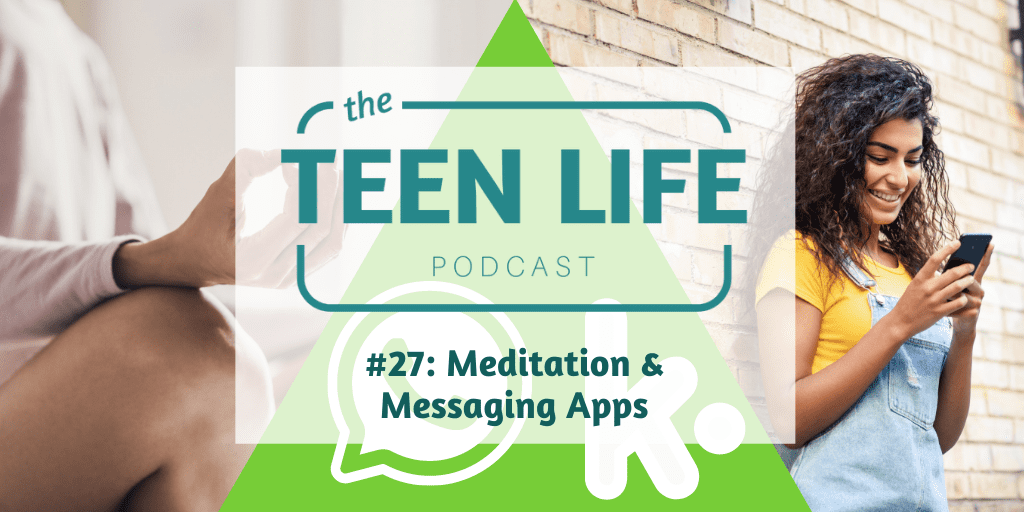
Ep. 27: Meditation & Messaging Apps
Podcast: Play in new window | Download
When the world feels chaotic, meditation can bring the peace and mental clarity you need to feel calm and composed again. There are many different forms of mediation and tools that you can use. Chris and Karlie chat about their favorites and ways that you can learn to incorporate meditation into your day. They’ll also share a mind-boggling tip on how to cure overthinking and give you information you should know about the messaging apps teens are using now.
In this episode, we mentioned the following resources:
- Mayo Clinic: Meditation: A simple, fast way to reduce stress
- Meditation Apps:
Calm
Headspace
Insight Timer
FitOn - Messaging Apps:
What’s App
Kik - TikTok: David Phillips on Overthinking
- David JP Phillips website
- Podcast Music: Luke Cabrera
Have a question?
If you have a question about something you heard or just want to give us some feedback, please leave us a comment below or email podcast@teenlife.ngo. We would love to hear from you!

Karlie Duke
Communications Director

Chris Robey
Former CEO
Karlie Duke | Director of Communications
Karlie has always had a heart for teenagers. Through her role at Teen Life, she loves to showcase the amazing stories coming out of Support Groups, but she is especially passionate about helping adults and teenagers find connection. Karlie has a BS in Communications with a minor in Family Studies from Abilene Christian University.
Chris Robey | Former CEO
Chris has spent most of his career empowering teenagers from all backgrounds. As the former leader of Teen Life, he is passionate about helping students make good choices while also giving adults the tools they need to communicate more effectively with teens. Chris is a graduate of Midwestern State University and holds a Master’s Degree in Family Life Education from Lubbock Christian University.







